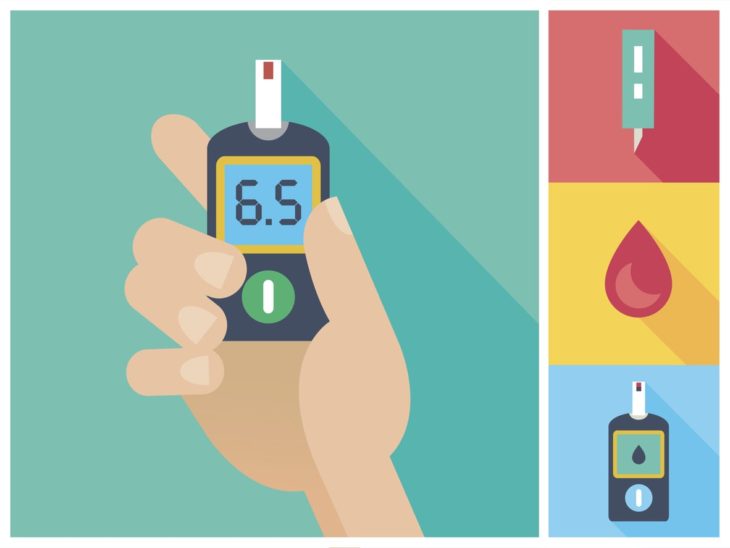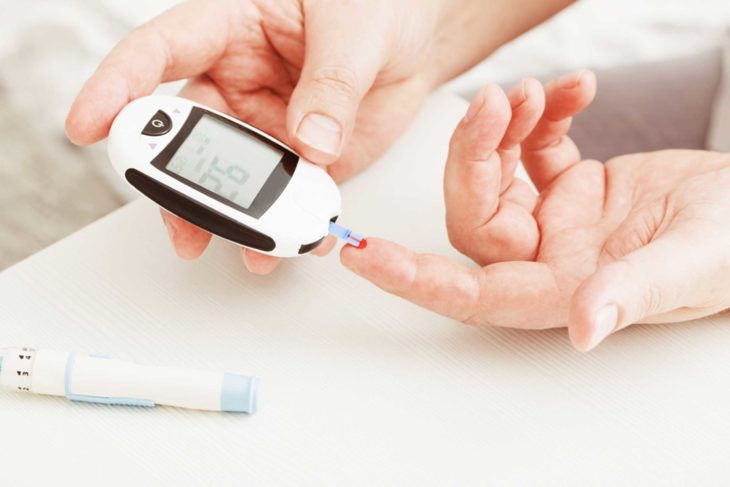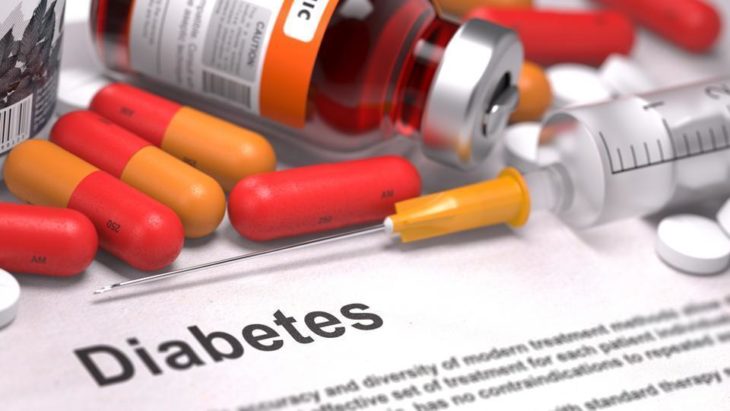Eventually, in the course of any new friendship or relationship, I have to reveal that I have diabetes. It’s usually greeted with a quizzical look and the question, “Wow, I thought only old/fat people have that,” or my personal favorite, “OH! My grandma DIED from that!” Um, great. By now I have my response down to an art. And in case we ever meet, I’ll save us the time by giving it here, in layman’s terms:
“Well, there are two types of diabetes, Type 1, juvenile, and Type 2, adult onset. I have Type 1.
The person usually says, ‘Ohhh,’ or, ‘Eww,’ or ‘God, I could NEVER do that,’ and we move on. But yeah, you could do that. You would do that if you wanted to stay alive.
With Type 2, which usually older or overweight people get—like your grandmother—your pancreas does not make enough insulin to break down the sugar and carbohydrates that you eat. It is stressed out and can’t work hard enough, but diet and exercise can lessen that struggle and can control the disease. Type 1, which I have, happens when your pancreas just stops making insulin altogether. There’s no reversing it; my pancreas is dead. Now I have to take insulin every time I eat anything, or else I will get sick. Some people take shots a few times a day, but I have an insulin pump that I dial up when I eat.”

Source: Medium
Then I show them the 18 inches of plastic tubing snaking out of a catheter in my abdomen, the pager-sized plastic box that I wear nearly 24 hours a day (except in the shower or pool) and hide in the waistband of my underwear. The person usually says, “Ohhh,” or, “Eww,” or “God, I could NEVER do that,” and we move on. But yeah, you could do that. You would do that if you wanted to stay alive.
So what is life like with diabetes? When I was first diagnosed at age 5, the doctors (endocrinologists, more specifically) told my parents that life with diabetes is a roller coaster. Always ups and downs, never resting, never just coasting. I’m always chasing that elusive “normal” blood sugar, between 70 and 120 mg. It’s affected by what I eat, if there’s a stressful project at work, the amount of sleep I got last night, how hard I worked out at the gym, that time of the month. If I get the stomach flu, it could be off to the hospital for an IV, and conversely, if I don’t get enough insulin I feel like I have the stomach flu. In summary, diabetes is a huge pain in the ass.
I can’t tell you how many times I’ve burst into angry tears. “It’s not fair! How come everyone else gets to be normal and I have a DISEASE.” In elementary school, kids called me “Diabetes Girl,” and in kindergarten, my school initially thought that diabetes could be spread like HIV and refused to let me test my blood sugar inside the building. I could never eat birthday cupcakes in class, and always carried around tiny juice boxes (I still keep them next to my bed). It’s something I have to think about constantly, and I certainly have problems with denial. But if you don’t think about it, it definitely won’t go away—like everything else you ignore, it gets worse. I can go blind, I can lose feeling in my extremities and have to amputate, my kidneys can fail. Any pregnancy I have must be planned to the minute, because extreme fluctuations in my blood sugar can hurt the baby. I even have a 25 percent chance of passing diabetes on to my future children, and am wracked with guilt at the thought. Then my daughter will be stuck bursting into angry tears, flinging her blood sugar meter across the room while her boyfriend stares in shock.

Source: caswellmedical.org
Speaking of which, I can’t even sleep naked if I wanted to because this damn insulin pump has nowhere to hook on to. And I can’t even count the number of times when things have gotten hot and heavy with a boy and a roving hand rips out the tiny tube taped to my stomach. Yeah, that hurts, and yeah, that definitely kills the mood. Finally, diabetes supplies and doctor visits are EXPENSIVE. I can’t EVER afford to go without insurance and a recent bout of unemployment left me hyperventilating. Though an easy choice, it’s agonizing as a young woman to buy a few months worth of insulin instead of that cute outfit I tried on at Nordstrom. No, diabetes is not fair. But you know, it could be worse.
I’m not dying any time soon, and I have no physical challenges or deformities. I can do anything I want in life, with only slightly more planning. Insulin doesn’t make my hair fall out or make me sick to my stomach with every injection. If I take care of myself, visit the doctor, exercise, eat right, do all the things we ALL should be doing to stay healthy, I’ll live a long, healthy, happy life. Having diabetes forces me to think about my health now, something which I’m sure I’ll appreciate when I am older. I’m also thankful I got diabetes as a child, so I could grow up with the “disease”—as much as I hate that word—and make it part of my life. And surprisingly, the times when I’ve dissolved into a self-pitying lump in the arms of a boyfriend, they all (OK, all two) have told me that they found it sexy that I usually dealt with this so well, that I can face my problems head-on. I was even dancing with a random guy at a club once when he brushed up against my pump. He paused, uncomfortably asking what that hard lump in my pants was. Err, awkward. But once I laughed, gave a condensed version of my spiel and showed him the pump, he exclaimed loudly in my ear, “THAT’S SO HOT!” Really? OK!

Source: Hindustan Times
I’ve met many of my favorite people by having diabetes, friends that I will have for the rest of my life (Hi, Lynn!) and my childhood hero, Mary Tyler Moore, at a diabetes summit. Of course I have scary stories—like the time my blood sugar went so low I had a seizure—but I have more wonderful, hilarious stories than I have time to tell. I’ve found that the best way to handle diabetes is to talk about it, share your ups and downs with your family and friends and create accountability for yourself. I consider myself extraordinarily lucky to have a great support system. So yes, while having diabetes definitely sucks, for lack of a better word, my roller coaster has been a pretty even mix of ups and downs. I’m happy to stick around for the ride as long as I can.
In this essay, for the interest of time, I’ve neglected to mention the symptoms of diabetes, including severe thirst, excessive urination, unusual weight loss, etc., and I have only glossed over the potential problems if diabetes goes untreated. If you or a loved one has those symptoms visit the doctor, ASAP.
Please visit the American Diabetes Association or the Juvenile Diabetes Association to find out more about a disease that affects millions of Americans and is more common than you might think. These sites are great resources to learn, connect with other diabetics, and donate towards research for a cure.
Original by Elissa Stooker
